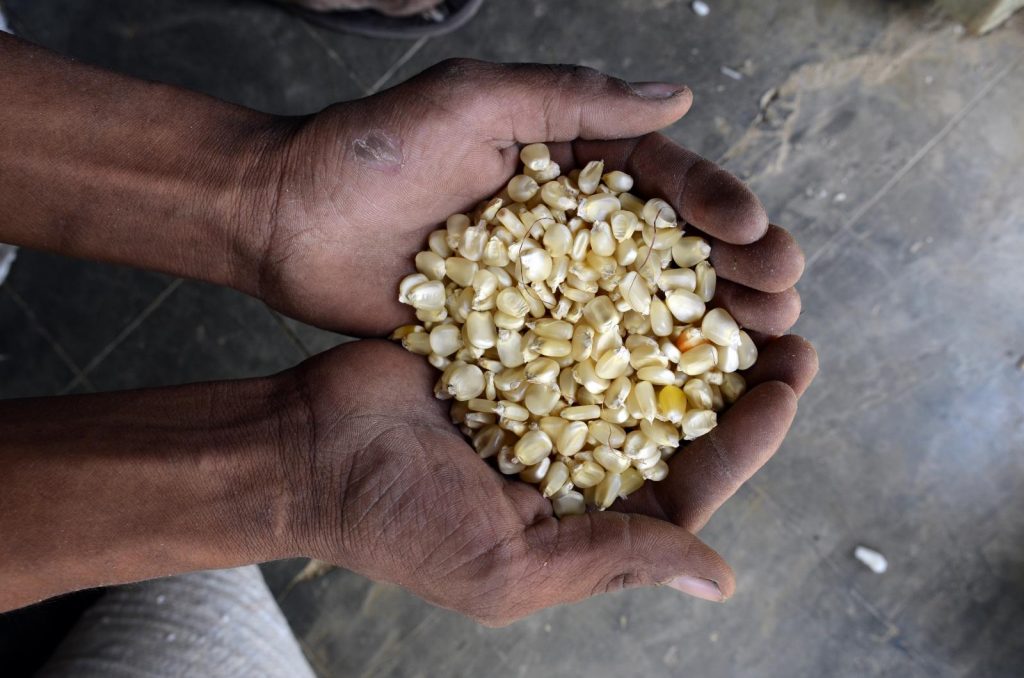Climate change expected to hit northern Central American countries disproportionately

Photo by Neil Palmer (International Center for Tropical Agriculture). Maize seed ready for planting in Nicaragua.
By Natasha Nagarajan
A recent study by the International Food Policy Research Institute estimates that rainfed maize yields in countries in northern Central America are at the highest risk of crop loss as a result of climate change in the region.
Maize crops occupy more than 36% of total cultivated land in Central America and almost 19% in the Andean countries. IFPRI’s study examined potential impacts of climate change through the year 2050. According to the results, Costa Rica is expected to suffer the hardest blow to maize yields, at an almost 17% loss, with Honduras following behind at around 12%.
Though there are steps that can be taken to soften the devastating effects of climate change, many countries in the area are unable to adapt in these ways. El Salvador faces the greatest challenges in adapting to climate change due to weak land tenure, poor access to land and markets due to bad road conditions, and poor access to government subsidies for seeds and fertilizer.
IFPRI suggests further research on potential adaption strategies like irrigation systems and public sector aid. Climate change and its effects must also be further analyzed to fully grasp the terms at stake for regions predicted to be devastated by climate change and help them in bettering their present and preparing for their future.
Read the full article here: http://bit.ly/2puOnYx
Read IFPRI’s complete reports here: http://bit.ly/30OrLPH
central america, climate change, IFPRI, Latin America, Maize, research
